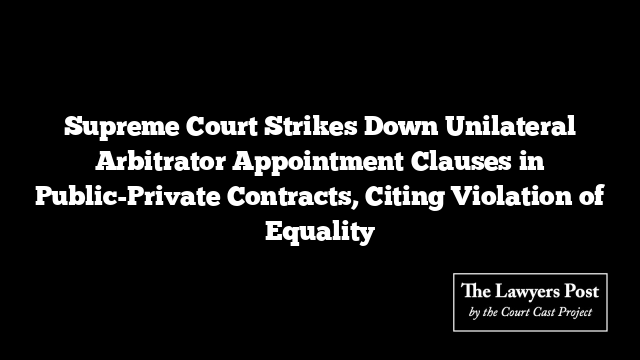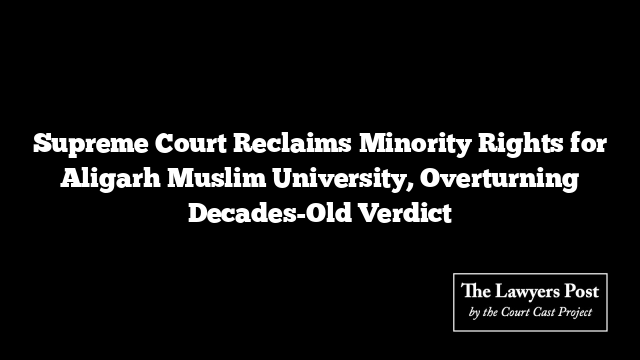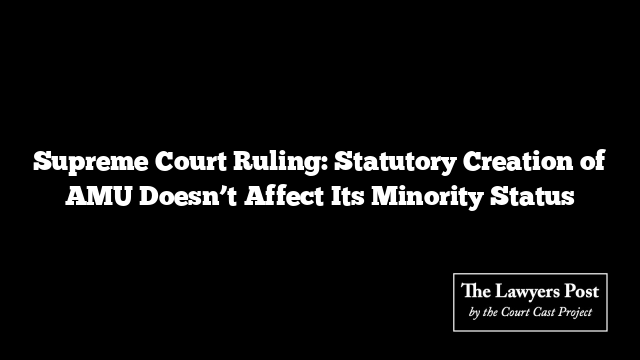The Supreme Court has ruled that unilateral arbitrator appointment clauses in public-private contracts violate the Constitution’s Article 14, which guarantees equality before the law. In a landmark judgment, the five-judge bench led by Chief Justice Dr. DY Chandrachud held that public sector undertakings (PSUs) cannot compel the other party in a contract to select an arbitrator exclusively from a curated panel of potential candidates chosen by the PSU.
The case arose from a dispute between the Central Organisation for Railway Electrification (CORE) and a joint venture (ECI-SPIC-SMO-MCML) after CORE terminated the contract for delay in work completion. CORE offered two lists of potential arbitrators, but the ECI refused to accept this and sought a sole arbitrator through the courts. The court’s intervention highlighted the issue of impartiality in the arbitration process when one party has control over the appointment process.
The Court emphasized that the principle of equal treatment applies to all stages of arbitration, including the appointment of arbitrators. Unilateral appointment clauses undermine the impartiality of arbitral tribunals and hinder equal participation by both parties. The judgment also asserts that such clauses breach the fundamental principle of equality and fairness in dispute resolution, violating the public policy of impartiality in arbitration.
In a separate but concurring opinion, Justice Hrishikesh Roy expressed support for the majority’s view on equal treatment but disagreed on invoking constitutional law principles in arbitration matters. He argued that arbitration law should remain distinct from constitutional principles, but emphasized that arbitration must still guarantee impartiality and fairness.
Justice PS Narasimha, while agreeing with the majority, reiterated the importance of maintaining party autonomy in arbitration agreements but underscored that this autonomy must be balanced with the statutory requirement for an independent and impartial tribunal. The Court stressed that any arbitration clause that compromises these essential features would be deemed void.
This judgment clarifies that public-private arbitration processes must uphold the independence and impartiality of arbitrators, ensuring that no party exercises undue control over the selection process. The ruling applies prospectively to all arbitration agreements made after the date of the judgment, particularly those involving three-member tribunals.





